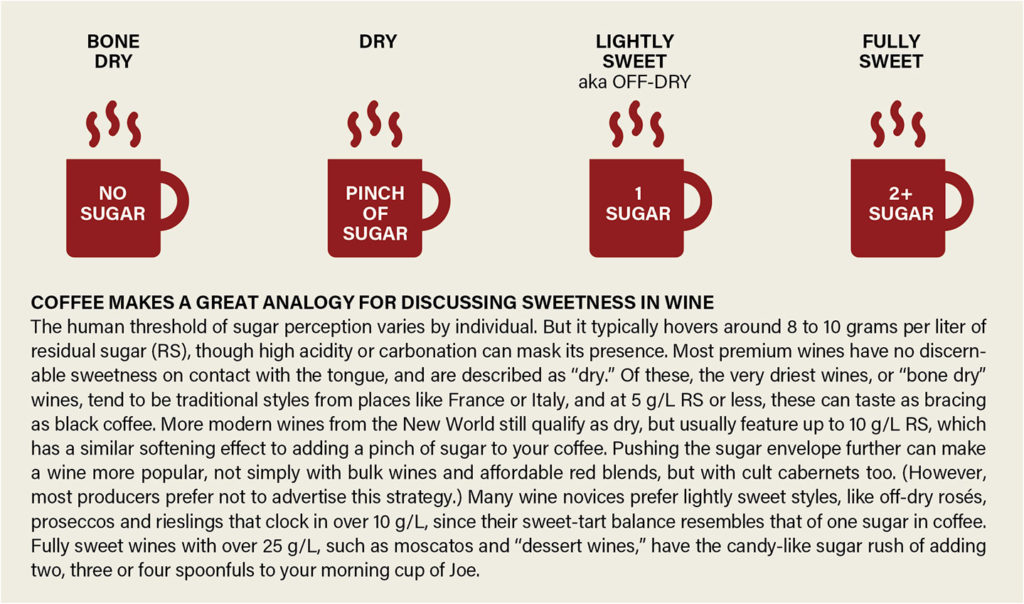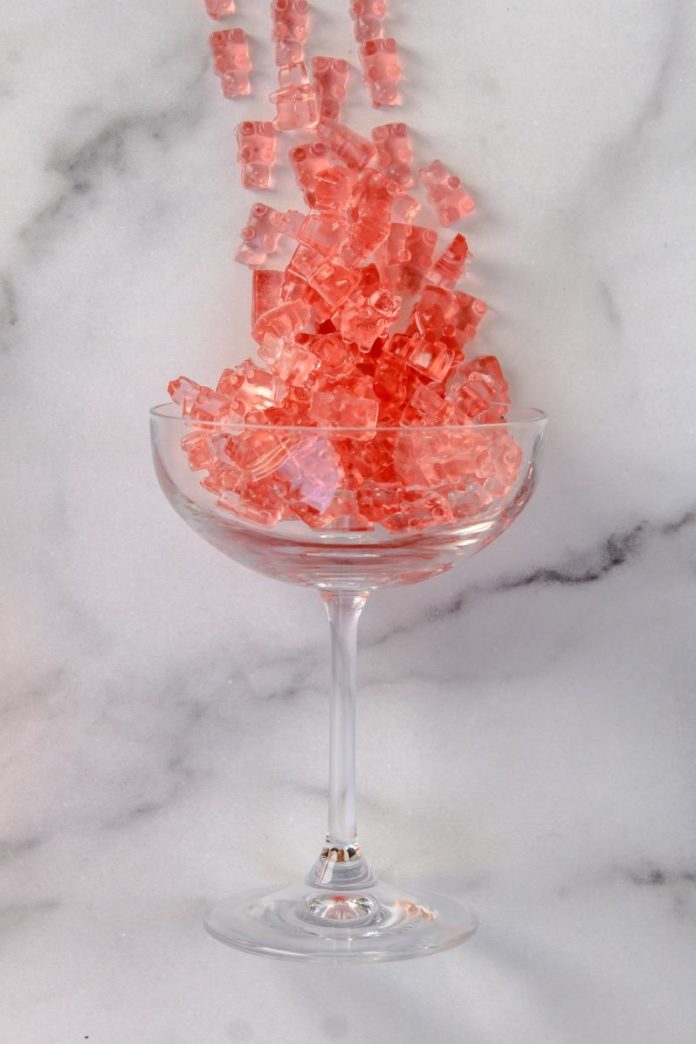Sweetness in wine — or its absence, known as dryness — causes more confusion for consumers than any other sensory trait.
This is largely due to the wine trade’s discomfort with discussing sweetness dispassionately. However, sugar content has a stronger effect on personal preferences and purchasing decisions than other traits. That’s why it’s well worth learning why sweetness is a touchy subject, and how to communicate about it clearly, without talking down to your customers.
Sugar is important to winemakers. It is the raw material that yeasts convert into alcohol during fermentation. Historically, it was challenging to preserve any sweetness at all without rendering a wine unstable and susceptible to spoilage. This explains why the vast majority of fine wine styles are dry, not sweet. Since dry wines typically taste better with food than they do on first sip, and often better than sweeter styles in the same context, foodies tend to acquire a taste for drier styles with experience, as do wine professionals.
However, humans are hard-wired to appreciate sugar. Most newcomers to the category instinctively prefer wines that feature some detectable sweetness. Mass-market brands capitalize on this, and reap a side benefit too, because low-grade sweetness can easily mask low-quality fruit. Additionally, some cultures use more sugar in their cuisine than others, a factor that strengthens the preference for sweeter wines in North America.
The result is a fundamental conflict between the drier tastes of wine professionals and the sweeter tastes of their customers. In order to make everyone happy and sell the most wine, frontline staff in retail stores must learn to identify which of their wines are marginally sweeter or drier (often without tech sheet guidance), and which of their shoppers favor sweeter or drier styles. It’s a fine line to walk. But learning how to “sweet talk” your customers without conveying judgment of their tastes is an invaluable skill.

Feature photo by by Wendy Rake on Unsplash.
Marnie Old is one of the country’s leading wine educators. Formerly the director of wine studies for Manhattan’s French Culinary Institute, she is best known for her visually engaging books published by DK – such as Wine: A Tasting Course. Marnie currently serves as director of vinlightenment for Boisset Collection. Read her recent piece, Does Wine Really Breathe in Barrels?




